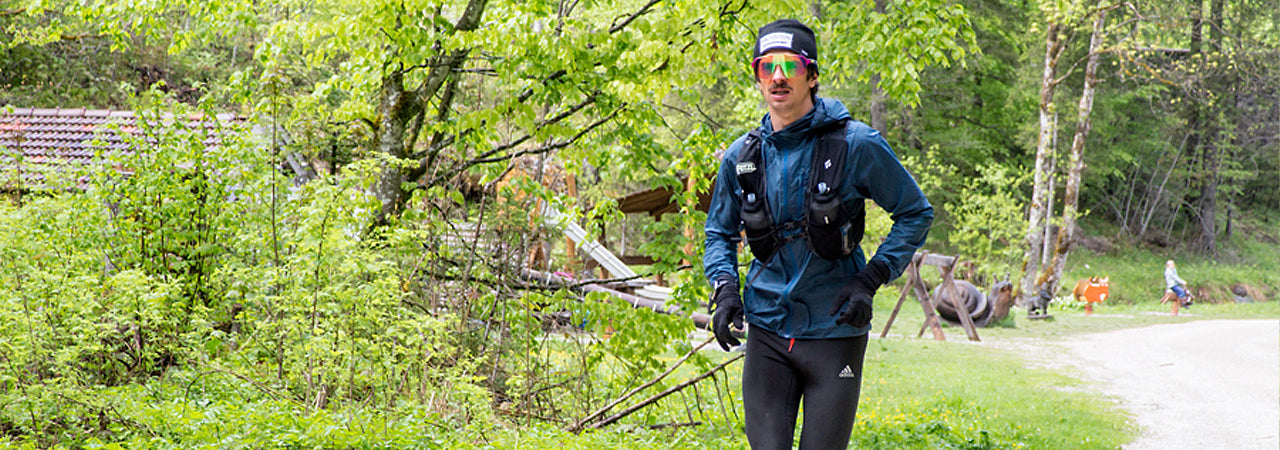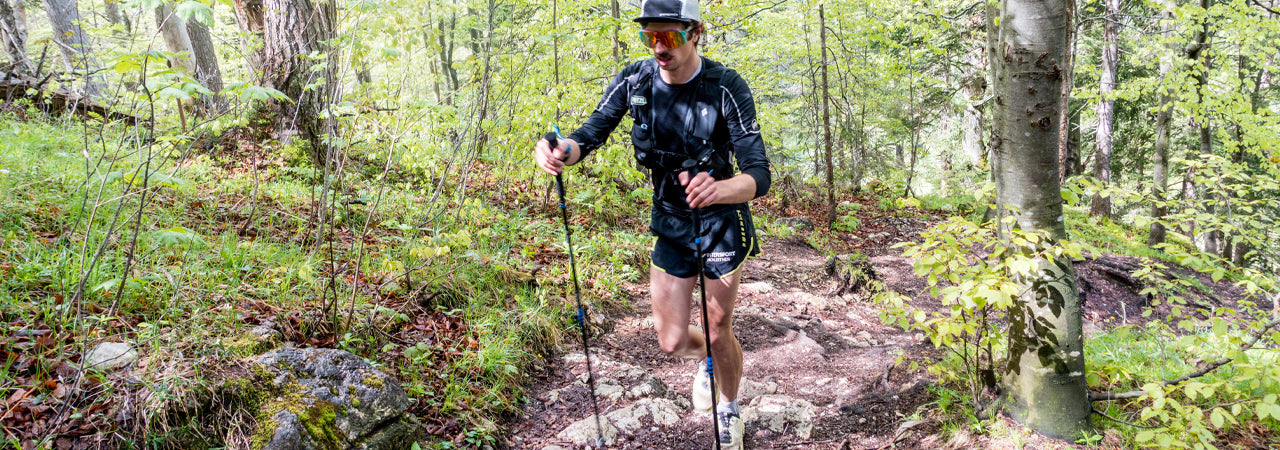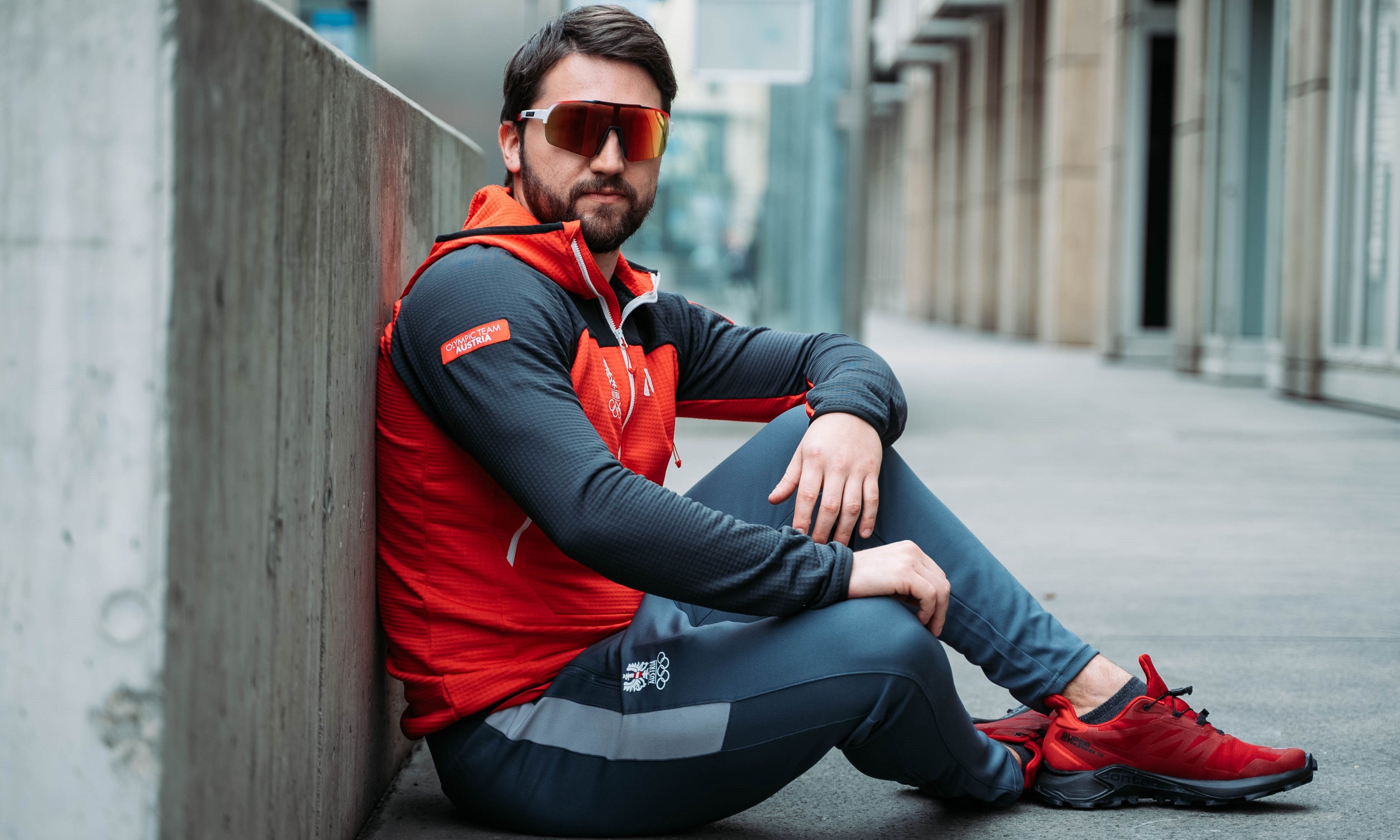Whether hilly, flat or in alpine terrain, trail running is all about having fun in nature! In this blog, our J. Athletics Ambassador Armin Zwinz shares his 9 best practice tips for beginners and goes into detail about nutrition and equipment.
- Start slowly and increase step by step. It is important that you always listen to your body. The more difficult the terrain, however, the more running experience you should have. At the beginning you should walk uphill and only run the flat parts. This way you will slowly build up the necessary strength. It takes a little time, but be patient.
- Warming up is mandatory, but avoid intensive stretching, because this will cause you to lose muscle tone and increase the risk of injury!
- Don't think too much about everyday life, enjoy the outside world and consciously perceive it while running. What flowers do you see? What birds do you hear?
- Run in a group! Don't go running alone, but look for other motivated runners. Because together it is more fun and you push each other.
- Baby powder can save lives in bad weather! With baby powder feet always stay dry.
- Keep your dirty socks! During long runs, you should not change your socks, because then you could get blisters much faster. However, it is very important to put on dry socks as soon as you get wet.
- Pay attention to your performance area! If you can talk as well as run, you are in the right power range.
- Run without music! Pay attention to your breath and focus on doing.
- Run out! Don't throw yourself on the couch with chips after the run - running out is the key.

Equipment
Saving money on equipment is never a good idea. Especially in trail running, the material is subjected to increased stress, so buy cheap, but not cheap.
Shoes: No matter how good your shoe is, if it's not broken in, you'll be in for a surprise on your first long run and be punished with blisters on your feet. I also recommend that you choose your running shoe 1-1/2 sizes larger than your road shoes. After about 100 km, it's definitely called: You need a new pair! At the latest then every running shoe is worn out.

Clothing: Be sure to wear breathable sportswear. In addition, you should always have a running jacket and a hood or headband with you to be prepared for cold snaps or rain. For socks, I recommend merino wool, which keeps you warm, is breathable, dries quickly and your feet will never stink again ;-)
The running backpack: Nothing works without a running backpack. You need at least a water bottle and bandages with emergency blanket, blister plaster, etc. with you. However, I always recommend taking two water bottles with you, one with water and one with an isotonic drink. The optimal size for the running backpack is about 7 liters.
The sticks: Not mandatory, of course, but they will help you keep your balance.
The heart rate monitor: Here, a beginner's device is enough so that you can control your heart rate and stay within the desired range.
Sun protection: Depending on the weather, you should not forget sunscreen. Sunglasses are always a must. Even if it is cloudy, the glasses protect your eyes from the wind, for example.

Nutrition
Everyone is different when it comes to nutrition. What everyone needs, however, is enough energy before the run and a quick replenishment of the stores after the run. What exactly suits you best, you have to find out for yourself.
A few basic rules: Eat natural foods as much as possible that are not very processed such as bread, potatoes, rice, etc. Do not use a lot of spices or sauces. Already the night before I would avoid heavy food and also onions, because they have negative effects on sleep! A pasta dish or lentils with potatoes are the best for me.
During a run you can burn 5000-6000 kcal. In this respect, you have to make sure that your energy level stays high with gels or bars during the run. After your trail run, of course, you can eat whatever you want.
Do not be afraid to start
You must be asking yourself, can I just run on it? Yes! Even as a complete beginner you can start on field and forest paths without any problems. Get to know your surroundings in a new way and take up the challenge. So what are you waiting for? Start your trail running adventure now!





